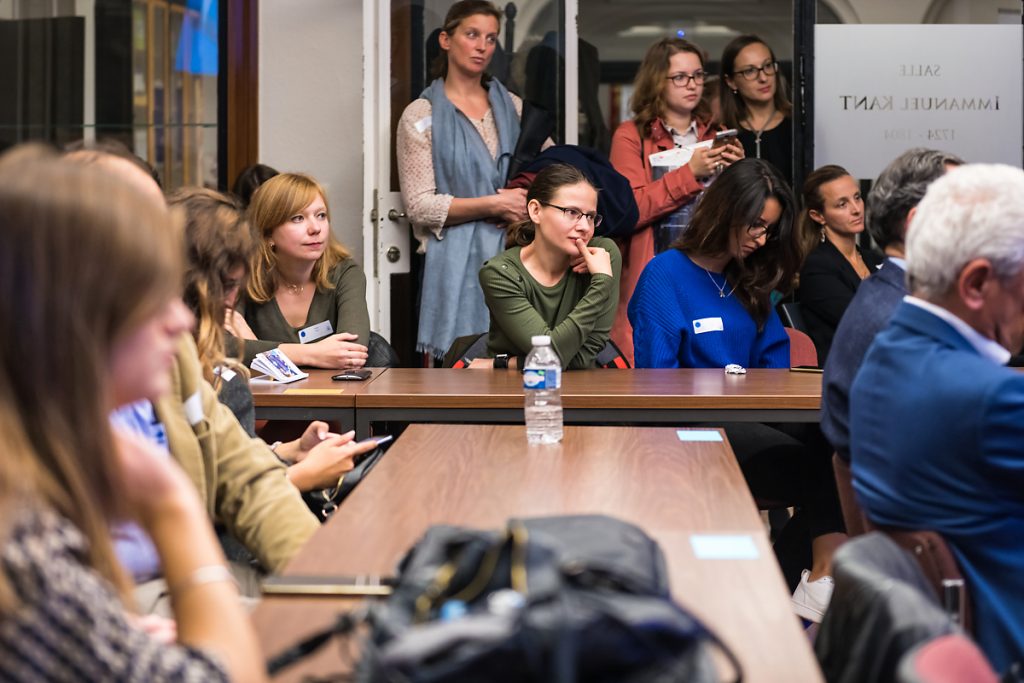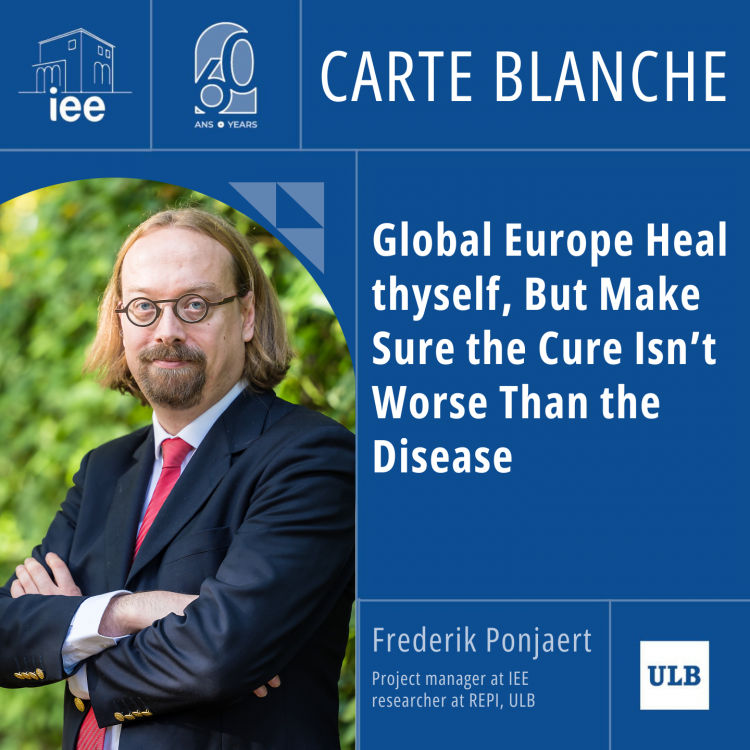Since 1964, the Institute for European Studies of the ULB (Institut d’études européennes de l’ULB – IEE-ULB) has graduated more than 7.500 students. Some stayed in contact with their Alma mater, becoming professors and directors of the Institute, while others left the IEE on Graduation day with a diploma and friends for life. Depending on the period, the Institute for European Studies has tried to stay in contact with its graduates.
The types of relations and kinds of collaborations have varied with time, in accordance with the level of enthusiasm of the IEE Alumni Association and the institution’s agenda. At the IEE’s 50th anniversary celebration, Jean-Victor Louis, former president of the Institute, emphasised “the importance of the movement which strives towards reuniting with former students”, “who owe the Institute the instruments that enabled them to realise their interest for European affairs, and often, to decide of their career path”. He also stressed that “our graduates may prove of invaluable support to the Institute”[1]
In continuity of the strong legacy left by the previous IEE authorities, we have, since our appointment in 2014, set ourselves as a primary goal to reinforce and diversify collaborations with graduates. It is a long-term goal whose implementation is gradual.
As such, alumni have regularly come back to the IEE since 2014, be it to participate in conferences and debates, to partake in convivial moments, to celebrate the 20 years of their graduation, to speak during teaching activities in the Masters in European studies, or in executive education-type of programs, or again to meet current students during mentoring sessions.
Getting closer to our alumni
The use of social media, more specifically the creation of a Facebook page and a LinkedIn account in the past few years, have enabled the further tightening of these bonds, thereby allowing graduates to remain in contact with their Alma mater if they wish to.
In encouraging these tight bonds with the graduates’ community, the IEE seeks to favour conviviality and mutual support for its members, thus offering a setting for debate on current European affairs during events or publications, and by the same token, to contribute to its own influence within civil society and the workplace.
Professional paths
Curious to learn more about the career paths of our graduates, we initiated this study with the valuable cooperation of three students from the Master in European Studies – Jean Duclos, Julien Bourgeois and Ana Cristina Dobrisan. It was a long-winded task, which both confirmed some of our hypotheses and yielded unexpected results.
Reviewing the career paths of graduates from 2003-2015 has allowed us to learn more about their geographic mobility within and outside the EU, their academic background – in terms of academic mobility and specialisation – and their professional paths since the end of their studies.
Discover the amazing career paths of our graduates by downloading our study about the IEE-ULB alumni.
The IEE’s story can be written in a variety of ways. We could look back at the institution’s evolution to tell an official and self-supporting story, but we could also see the evolution of the IEE from a critical viewpoint by rather focusing on those who chose the IEE to educate and build a career for themselves.
While this study serves as a means for the IEE to better grasp its graduates’ trajectories, it also shows, like all the other activities it organises, the Institute’s wish to keep strong bonds with its former students, whose contribution to the development of the Institute is crucial.
Ramona Coman, Director of the IEE, and Anne Weyembergh, President
IEE 18 July 2018
References
[1] John Nieuwenhuys, L’Institut d’études européennes : 50 ans de recherche et d’enseignement en quête d’ouverture, p. 5




